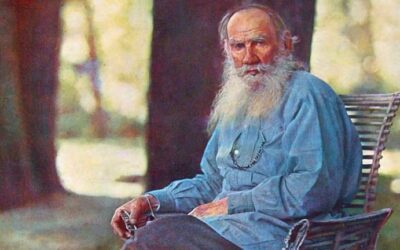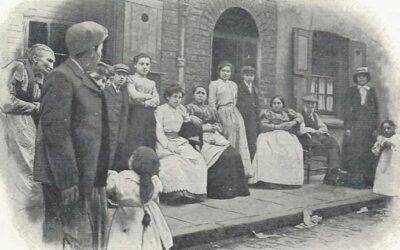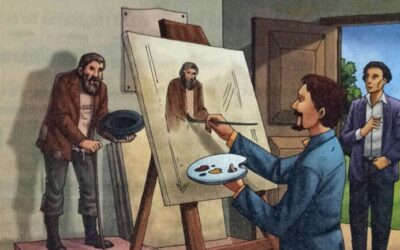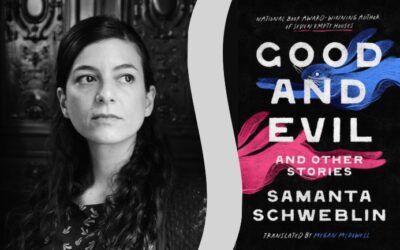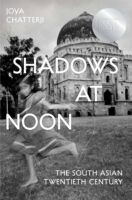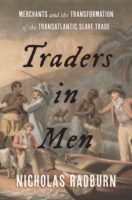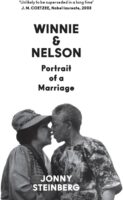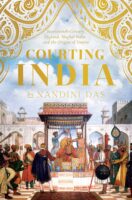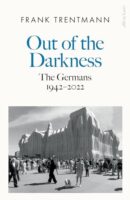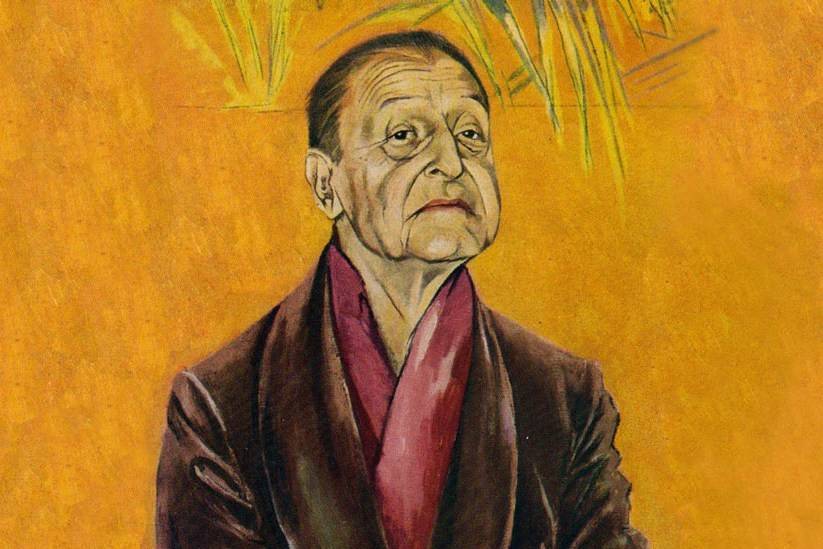The Wolfson History Prize Shortlist 2024
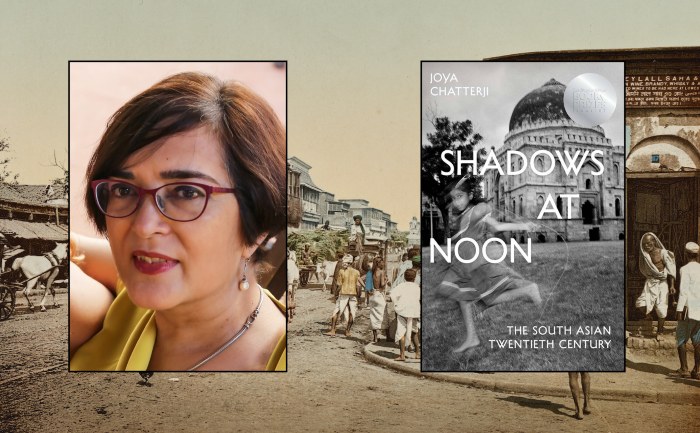 wolfson cover 2024
wolfson cover 2024
The Wolfson History Prize Shortlist 2024 has now been announced. Awarded by the Wolfson Foundation annually for over fifty years, the Wolfson History Prize is the UK’s most prestigious history prize. It recognises and celebrates books which combine excellence in research with readability.
The Wolfson History Prize Shortlist 2024
Shadows at Noon by Joya Chatterji
Shadows at Noon tells the subcontinent’s story from the British Raj through independence and partition to the forging of the modern nations of India, Pakistan and Bangladesh. Unlike other histories of the region which concentrate exclusively on politics, here food, leisure and the household are given as much importance as nationhood, migration, and the state.
Chatterji makes contemporary South Asia – its cultural vibrancy, diversity, social structures and political make-up – accesible to everyone. In so doing this bold, innovative, and personal work rallies against narratives of ‘inherent’ differences between India, Pakistan and Bangladesh and reveals the many things its people have in common.
Traders in Men by Nicholas Radburn
During the eighteenth century, Britain’s slave trade exploded in size. Formerly a small and geographically constricted business, the trade had, by the eve of the American Revolution, grown into an Atlantic-wide system through which fifty thousand men, women, and children were enslaved every year.
In Traders in Men: Merchants and the Transformation of the Transatlantic Slave Trade, Nicholas Radburn explains how thousands of slaving merchants in Africa, Britain, and the British Americas collectively created this cancerous system by devising highly efficient, but also violent, new business methods. African brokers developed commercial techniques that facilitated the enslavement and sale of millions of people. Britons invented shipping methods that quelled enslaved people’s constant resistance on the Middle Passage. And American slave traders formulated brutal techniques through which shiploads of people could be quickly sold to a variety of colonial buyers.
Truly Atlantic-wide in its vision, this study shows how the slave trade became one of the most important phenomena in world history and dragged millions of people into the trade’s terrible vortex.
Winnie & Nelson by Jonny Steinberg
One of the most celebrated political leaders of a century, Nelson Mandela has been written about by many biographers and historians. But in one crucial area, his life remains largely untold: his marriage to Winnie Madikizela-Mandela. During his years in prison, Nelson grew ever more in love with an idealized version of his wife, courting her in his letters as if they were young lovers frozen in time. But Winnie, every bit his political equal, found herself increasingly estranged from her jailed husband’s politics. Behind his back, she was trying to orchestrate an armed seizure of power, a path he feared would lead to an endless civil war.
Jonny Steinberg tells the tale of this unique marriage—its longings, its obsessions, its deceits—making South African history a page-turning political biography. Winnie and Nelson is a modern epic in which trauma doesn’t affect just the couple at its center, but an entire nation. It is also a Shakespearean drama in which bonds of love and commitment mingle with timeless questions of revolution, such as whether to seek retribution or a negotiated peace. Steinberg reveals, with power and tender emotional insight, how far these forever-entwined leaders would go for each other and where they drew the line. For in the end, both knew theirs was not simply a marriage, but a contest to decide how apartheid should be fought.
Courting India by Nandini Das
When Thomas Roe arrived in India in 1616 as James I’s first ambassador to the Mughal Empire, the English barely had a toehold in the subcontinent. Their understanding of South Asian trade and India was sketchy at best, and, to the Mughals, they were minor players on a very large stage. Roe was representing a kingdom that was beset by financial woes and deeply conflicted about its identity as a unified ‘Great Britain’ under the Stuart monarchy. Meanwhile, the court he entered in India was wealthy and cultured, its dominion widely considered to be one of the greatest and richest empires of the world.
In Nandini Das’s fascinating history of Roe’s four years in India, she offers an insider’s view of a Britain in the making, a country whose imperial seeds were just being sown. It is a story of palace intrigue and scandal, lotteries and wagers that unfolds as global trade begins to stretch from Russia to Virginia, from West Africa to the Spice Islands of Indonesia.
Out of the Darkness by Frank Trentmann
In 1945, Germany lay in ruins, morally and materially. The German people stood condemned by history, responsible for a horrifying genocide and a war of extermination. But by 2015 Germany looked to many to be the moral voice of Europe, welcoming almost one million refugees. At the same time, it pursued a controversially rigid fiscal discipline and made energy deals with a dictator. Many people have asked how Germany descended into the darkness of the Nazis, but this book asks another vital question: how, and how far, have the Germans since reinvented themselves?
Trentmann tells the dramatic story of the Germans from the middle of the Second World War, through the Cold War and the division into East and West, to the fall of the Berlin Wall and the reunited nation’s search for a place in the world. Their journey is marked by extraordinary moral struggles: guilt, shame and limited amends; wealth versus welfare; tolerance versus racism; compassion and complicity. Through a range of voices – German soldiers and German Jews; environmentalists and coal miners; families and churches; volunteers, migrants and populists – Trentmann paints a remarkable and surprising portrait over 80 years of the conflicted people at the centre of Europe.
Our NHS by Andrew Seaton
In recent decades, a wave of appreciation for the NHS has swept across the UK. Britons have clapped for frontline workers and championed the service as a distinctive national achievement. All this has happened in the face of ideological opposition, marketization, and workforce crises. But how did the NHS become what it is today?
In this wide-ranging history, Andrew Seaton examines the full story of the NHS. He traces how the service has changed and adapted, bringing together the experiences of patients, staff from Britain and abroad, and the service’s wider supporters and opponents. He explains not only why it survived the neoliberalism of the late twentieth century but also how it became a key marker of national identity. Seaton emphasizes the resilience of the NHS—perpetually “in crisis” and yet perennially enduring—as well as the political values it embodies and the work of those who have tirelessly kept it afloat.
Now in its 52nd year, the Wolfson History Prize celebrates books that combine excellence in research with readability for a general audience, demonstrating the relevance of history and historical writing to society today. The most valuable history writing prize in the UK, the Wolfson History Prize awards a total of £75,000 with the winner receiving £50,000 and each of the five shortlisted authors receiving £5,000.
The overall winner of the Wolfson History Prize 2024 will be revealed at a ceremony in central London on Monday 2 December 2024.
If you enjoyed The Wolfson History Prize Shortlist 2024, check out 11 Amazing Biographies to Read


